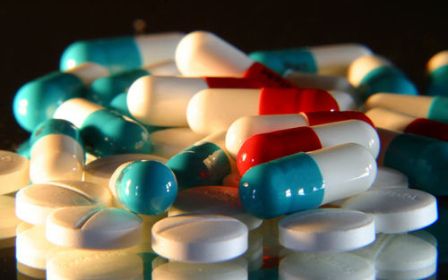Treatment
Treatment is a series of systems and supports that enable individuals to deal with their addiction problems, make healthier decisions about their lives and eventually resume their place in the community. It focuses on those with opioid/substance use (mild, moderate, severe) and can extend to support and help those impacted by opioid use.
In 2014, about 21.5 million Americans ages 12 and older were classified or diagnosed with a substance use disorder in the past year. An estimated 1.9 million people had an opioid use disorder related to prescription pain relievers and an estimated 586,000 had an opioid use disorder related to heroin use. Only 10% receive any type of treatment (National Survey on Drug Use & Health).
Types of Treatment Services
Click here for descriptions of different types of treatment services.
You can also learn more detailed information from SAMHSA’s website on different kinds of treatment and services that are effective in helping people with substance use disorders.
Treatment is comprised of multiple service components, including:
- Individual and group counseling
- Inpatient and residential treatment
- Intensive outpatient treatment
- Partial hospital programs
- Case or care management
- Medication Assisted Treatment (MAT)
- Recovery support services
- 12-Step fellowship
- Peer supports
A person accessing treatment may not need to access every one of these, but each plays an important role. These systems are embedded in a broader community and the support provided by various parts of that community also play an important role in supporting the recovery of people with substance use disorders.
REMEMBER: Addiction is a Medical Condition
Addiction is a brain disease that affects the priorities, physiology and thought process.
Opioid drugs work by binding to opioid receptors in the brain, thereby reducing the intensity of pain signals that reach the brain. However, frequent use of opioids can physically change the brain to the point where it needs opioids to function normally. www.outthemonster.com
When a drug user can’t stop taking a drug even if he wants to, it’s called addiction. The urge is too strong to control, even if you know the drug is causing harm.
When people start taking drugs, they don’t plan to get addicted. They like how the drug makes them feel. They believe they can control how much and how often they take the drug. However, drugs change the brain. Drug users start to need the drug just to feel normal. That is addiction, and it can quickly take over a person’s life.
Addiction is a brain disease.
- Drugs change how the brain works.
- These brain changes can last for a long time.
- They can cause problems like mood swings, memory loss, even trouble thinking and making decisions.
Addiction is a disease, just as diabetes and cancer are diseases. Addiction is not simply a weakness. People from all backgrounds, rich or poor, can get an addiction. Addiction can happen at any age, but it usually starts when a person is young. www.drugabuse.gov/drugs-abuse
What’s Relapse
Sometimes people quit their drug use for a while, but start using again no matter how hard they try not to. This return to drug use is called a relapse. People recovering from addiction often have one or more relapses along the way.
Drug addiction is a chronic (long-lasting) disease. That means it stays with the person for a long time, sometimes for life. It doesn’t go away like a cold. A person with an addiction can get treatment and stop using drugs. But if he started using again, he would:
- Feel a strong need to keep taking the drug.
- Want to take more and more of it.
- Need to get back into treatment as soon as possible.
- He could be just as hooked on the drug and out of control as before.
Recovery from addiction means you have to stop using drugs AND learn new ways of thinking, feeling, and dealing with problems. Drug addiction makes it hard to function in daily life. It affects how you act with your family, at work, and in the community. It is hard to change so many things at once and not fall back into old habits.
Recovery from addiction is a lifelong effort. www.drugabuse.gov/related-topics/recovery
Treatment Services in Fond du Lac County
FDL County Treatment Services List
Are You Covered?
If you have Insurance: call the number on your insurance card to find out what providers and services are covered.
If you do NOT have Insurance: call or contact the following agencies:
- Fond du Lac County Department of Community Programs – visit or call 920.929.3565
- SSM Agnesian HealthCare, Samaritan Clinic – visit or schedule an appointment online or call 920.926.4841 or Waupun Memorial Hospital, 920.324.6540
Online Resources for Insurance:



